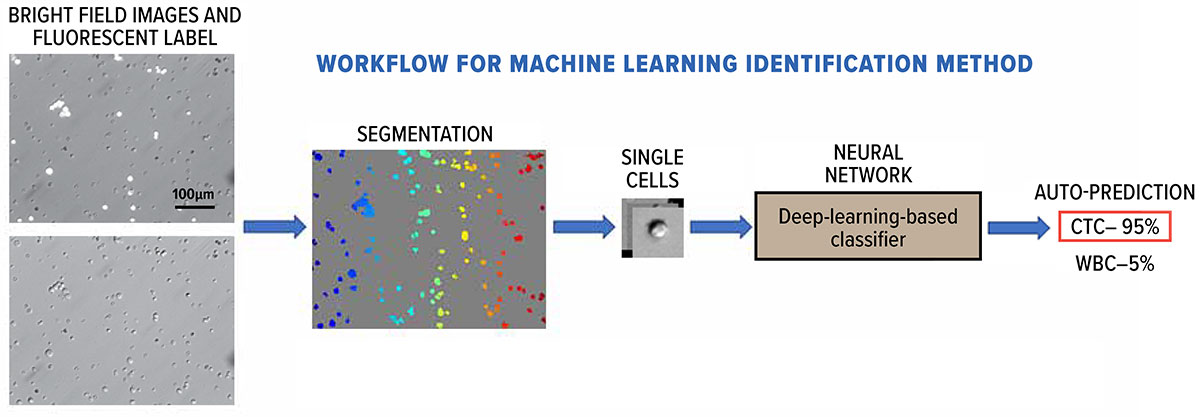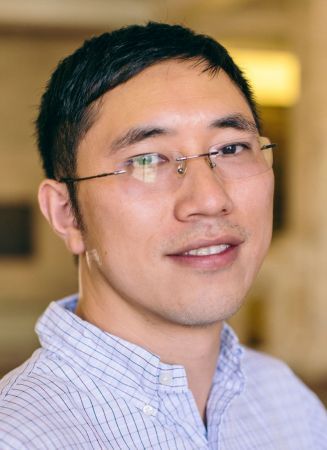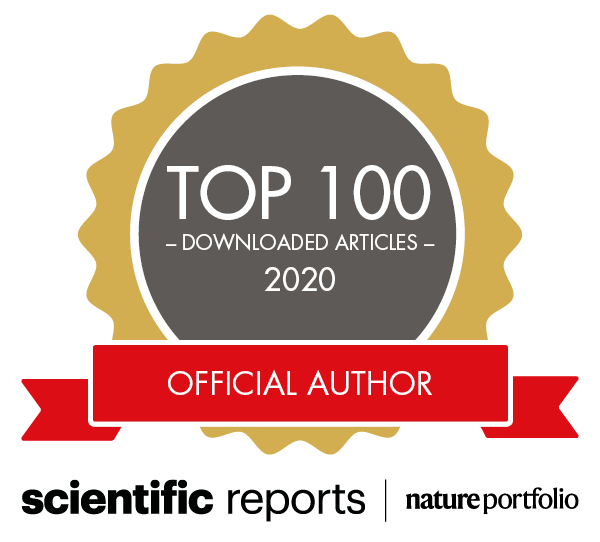A research paper from the Liu Research Lab at Lehigh University, "Label-free detection of rare circulating tumor cells by image analysis and machine learning," published July 22, 2020, in Scientific Reports, was downloaded 2,587 times in 2020, making it one of the top 100 downloaded cancer papers in the journal for the year.
Scientific Reports published more than 1,000 cancer papers in 2020, according to the publisher (Nature Portfolio/Springer Nature). The data was obtained from SN insights which is based on Digital Science's Dimensions.
The study demonstrates effectiveness of a new, innovative machine learning technique to analyze the presence of rare circulating tumor cells (CTCs) in blood. The distinction indicates the value of this important work to the cancer research community.
The paper's authors are Rossin College graduate students Shen Wang (mechanical engineering and mechanics), Yuyuan Zhou (bioengineering), and Xiaochen Qin (bioengineering); Suresh Nair (Lehigh Valley Health Network, Lehigh Valley Cancer Institute); Xiaolei Huang (associate professor, College of Information Sciences and Technology and Huck Institutes of the Life Sciences, Pennsylvania State University) and Yaling Liu (professor, bioengineering and mechanical engineering and mechanics, Lehigh University).

A deep-learning model was trained with cropped single-cell in bright field images and tuned “to reach better results until the outcome reached the state-of-the-art,” says Yaling Liu, a professor of bioengineering and mechanical engineering and mechanics. (Figure credit: Shen Wang/Liu Research Lab)
About the Liu Research Lab
The primary research interest of the Liu Research Lab is micro-/nano-engineering for biology and medicine, in particular, using combined experimental and computational approaches to characterize the interfacial phenomena at the micro-/nano- scale and in biological systems. Examples include lab on chip devices for biomedical application, fluid-structure interaction, particulate and multiphase flow, blood rheology, biomedical device (artificial heart, valves, stents, etc.) design, electromagnetic manipulation of bio-nanoparticles, DNA sequencing in functionalized nanopores, etc. Current efforts focus on two emerging applications of bio-nanotechnology: nanomedicine and biosensing, which involve microfluidics, multiscale modeling, biofluid mechanics, image-based simulation, MEMS fabrication, 3D printing, nanoparticle adhesion dynamics, and cell manipulation.


